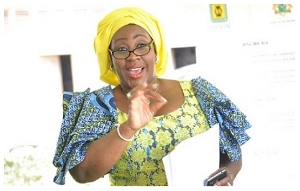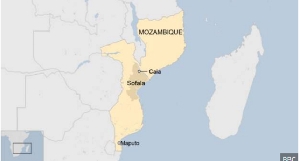Opinions of Thursday, 10 January 2013
Columnist: Darko, Otchere
After The Swearing-In Of President Mahama
The Time Has Come To Reflect Over Article 64 Of The 1992 Constitution.
By: Otchere Darko
The purpose of this article is to highlight the fact that the 1992 Constitution has certain weaknesses that accounted for all the contradictions and emotions that surrounded the swearing-in of His Excellency John Dramani Mahama as the fourth President of Ghana’s Fourth Republic.
*In my view, after allowing any aggrieved citizen of Ghana to challenge any presidential election results declared by the Electoral Commission, article 64 of the Constitution should NOT have allowed a President-elect whose election has been challenged to be sworn in before the Supreme Court has decided any law suit challenging the election of such President-elect. By allowing the two conflicting actions (the “challenge” and the “swearing-in”) to take place, the 1992 Constitution has created a fertile ground for misunderstandings, misconceptions, contradictions and other forms of antilogy that can trigger the eruption of anger and antipathy, such as we experienced in Ghana during the period preceding and surrounding the swearing-in ceremony.
Apart from creating human-related problems, such a situation that allows presidential election results to be challenged while, at the same time allowing the swearing-in of the President-elect to take place before the Supreme Court has ruled on a legal suit challenging the President-elect, also creates a room for possible ‘double swearing-in’ ceremonies, in a likely event of the Supreme Court ruling to reverse a previous declaration that has been the subject of challenge. For example, in the current NPP challenge, it is possible for the Supreme Court to rule to reverse the results in favour of the NPP and its Presidential candidate (Nana Akufo-Addo), because one can assume a fifty-fifty chance of the ruling going either way. Should such a situation happen, it would mean that there has to be another swearing-in, with its extra financial costs to the State and associated administrative headaches for the new NPP President. *While clause (2) of article 64 says “a declaration by the Supreme Court that the election of the President is not valid shall be without prejudice to anything done by the President before the declaration”, some actions of the sworn-in President [Mahama] that take place before the Supreme Court’s ruling may be unsustainable politically, and may, thus, have to be reversed by a new President [Akufo-Addo] administration that would emerge after a court ruling that invalidates the election of the sworn-in President [Mahama]. To illustrate one example, even though all ministerial and ambassadorial appointments that may be made by President Mahama after his swearing-in will all be lawfully made, nonetheless, they are all likely to be cancelled by a new Akufo Addo administration, should the pending Supreme Court ruling lead to the emergence of a new President (Akufo-Addo). What a waste of time and resources such a scenario would create!
Apart from this special problem that could arise from political appointments with its extra costs to the State, a second swearing-in of a possible new President-elect resulting from a possible Supreme Court annulment of the 9th December declared election results would also create diplomatic problems across the whole of the international world. For example, would the countries that attended the first swearing-in ceremony attend the second swearing-in? If they don’t, would that lead to any diplomatic fallout from the failure of such countries that fail to attend the second swearing-in, when those countries attended the first one? And would the a decision to attend the second swearing-in ceremony by countries that did not attend the first swearing-in not be misconstrued by President Mahama and the NDC party, against whom the court ruling would have gone, even where those countries that failed to attend the first swearing-in may have had genuine reasons for failing to attend?
In my view, article 64 of the 1992 Constitution SHOULD have provided for a “caretaker President”, in any situation where there has been a challenge to presidential election results declared by the EC. Where the declared winner being challenged is a sitting President, he should continue to rule the country as the President of Ghana after 7th January, but in a “caretaker” position, until the Supreme Court rules to confirm or reverse the declared election results being challenged. Where the sitting President is not a candidate in the election that is being challenged, and is therefore only going to hand over to the President-elect whose election has been challenged, such an outgoing sitting President should continue to act as President, though in a caretaker role, until the Supreme Court makes a ruling in the suit challenging the election results. *A “caretaker President” would not need to be sworn-in, since he or she would have been the President before the elections. This caretaker President would also not need to make any new ministerial and diplomatic appointments, since he would have had all these people working for him or her before the elections. All such old team members of the caretaker President would continue their various positions, but as “caretaker Ministers or Ambassadors” from the 7th of January, which should have been the day for transfer of power to a new administration.
In and during such caretaker presidential situation and period, when a Supreme Court ruling is being awaited, two questions would arise that would need answers. These two questions are:
(1) What should happen to Parliament, where the President and the rest of the Executive are acting in caretaker roles? *There are two options, one of which an amended article 64 could put in place. The first option is that the newly elected Parliamentarians could take their seats in Parliament, since they would be elected in parliamentary elections that could not collectively be a subject of any challenge in a law suit. The second option is that they (the newly elected Parliamentarians) could wait until the court case against the President-elect would be decided in one way or the other to lead to a reconfirmation of the President-elect, or to the emergence of a new President-elect; either because of a reversal of the previous presidential election results, or following a second ballot directed by the Supreme Court as part of its ruling.
(2) Should a “caretaker President” take decisions that have long-term implementation effect? *My answer to this second question is no. A caretaker administration must have its powers ‘pruned’ by the amended article 64 of the Constitution, to ensure that such a short-term administration handles only short-term matters that involve recurrent expenditures and the supervision of existing capital projects only.
To put in place the suggestions made in this write-up, the 1992 Constitution will need to be amended to allow article 64 and other related articles in other parts of the Constitution to be changed, so that new provisions are put into the Constitution to replace others that that need to be removed, so as to create a post-elections atmosphere devoid of constitutionally motivated political misunderstanding and clashes. Any such amendments must also include:
(i) setting a time limit for the Supreme Court to decide any suit that challenges the election results declared or not declared by the EC;
(ii) Forcing the EC to hold presidential and parliamentary elections [at least] three months before the swearing-in date for the inauguration of the President-elect, to make it possible for election challenges, especially the one that concerns presidential elections, to be decided within the three-month interim.
Source: Otchere Darko; (My Political Views {Domestic}).












